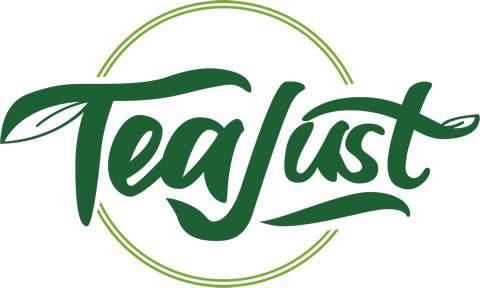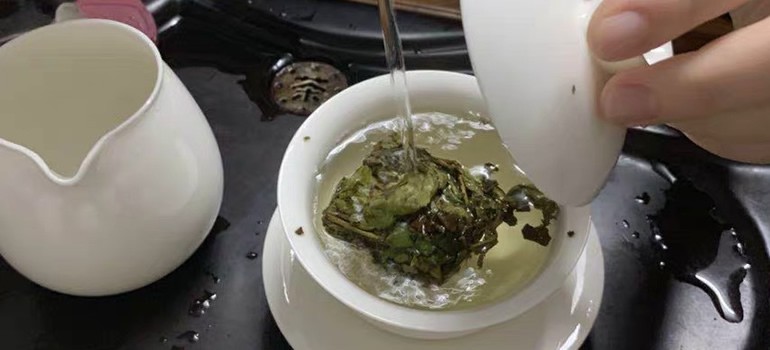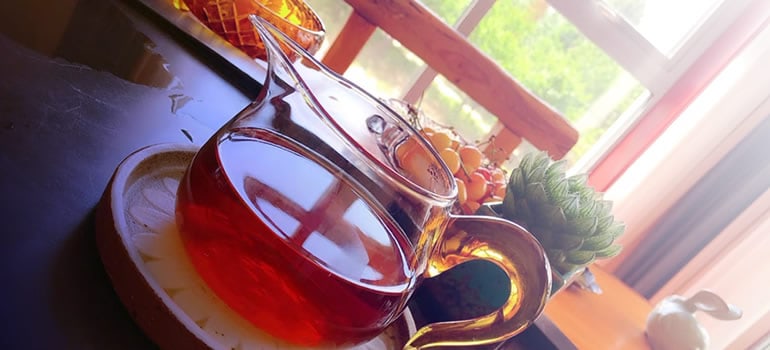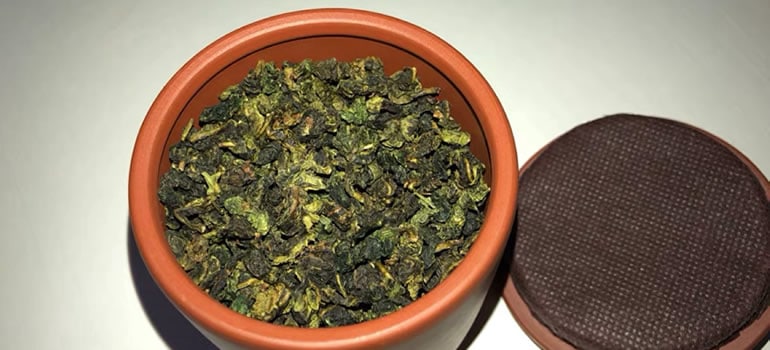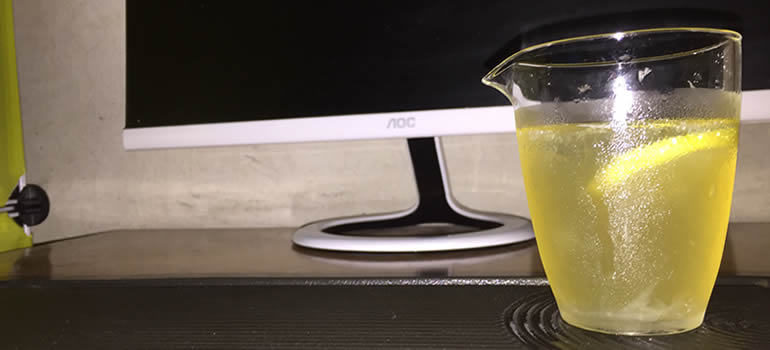Soda and tea are among the most common beverages that people can drink at any time of the day. Whether you are looking for an energy boost in the morning, a beverage after a meal, or something to drink on your break at work or school, this article will help you decide which to reach for.
So is tea better than soda? Many people would say yes, but it depends on what you want to get from the drink and your dietary requirements. They both present you with various choices, some of which are healthier than others.
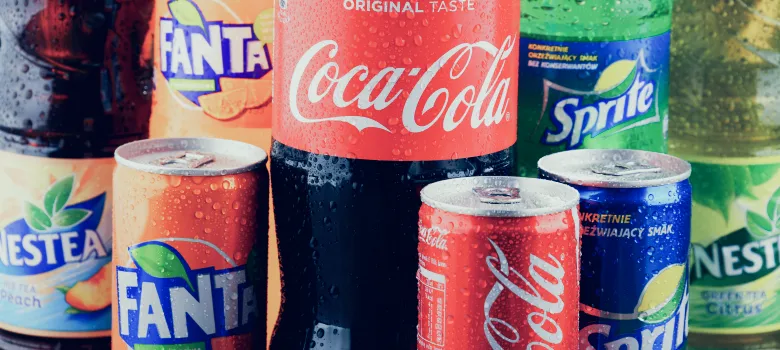
With tea, for example, you can choose classic black or white, iced, cold brew, matcha, sweet, or green tea. With soda, you can choose among the numerous brands and whether you want a diet one or not.
With little or no information about the beverages, it can be hard to make the choice. However, this article compares some essential information to help you make the best choice.
Caloric Showdown: Tea vs. Soda
Calories are essential to consider if you are on a strict calorie-free diet or want to lose weight. A 12-ounce soda can usually contains around 125-180 calories, mostly from the sugars used in manufacturing. This is usually between 8 and 11 teaspoons of sugar in a one-glass serving.
The Center for Science in the Public Interest classifies soda as the highest calorie and added sugar source for many average Americans.
This measure, however, differs in normal and diet soda. Diet Coke and Pepsi, for example, have zero calories because they use low-calorie sweeteners.
Tea, on the other hand, contains no calories when plainly brewed. However, most ready-to-drink teas have different calorie levels depending on the ingredients used to make them.
If you add a teaspoon of sugar to a cup of tea, it adds the calories by 20, and if you use honey, the calories increase to 40. Adding milk or heavy cream to the tea increases the calories.
You can reduce the calories in your tea by using skim or low-fat milk, avoiding sugary additions, and reducing your intake of ready-made teas.
Caffeine Content: Which Drink Gives You More of a Boost?
Caffeine, a natural stimulant, is one of the main reasons people reach for tea or soda in the morning or before strenuous activity. However, taking too much could cause issues, which is why you should determine the right amount of caffeine to take.
Tea leaves usually contain around 3.5% caffeine by weight. A standard cup of tea could have around 50mg of caffeine.
However, the caffeine in your drink will depend on how you prepare your tea, the amount and type of tea leaves you use, the temperature of the water you use to brew the tea, and the tea variety you take.
Using broken tea leaves, like the ones in tea bags, deliver more caffeine than using whole tea leaves. This is because there is more surface area for the water to come into contact with.
The more tea leaves you use, the higher the caffeine content in your tea. When brewing your tea, the longer the tea leaves remain in the water, and the hotter the water, the more caffeine you get.
With soda, the caffeine content depends on the amount, brand, and type of soda you drink.
A regular Coke, for example, contains 34 mg of caffeine in a 12-oz can, while diet Coke contains 46 mg. If you are a Mountain Dew fan, a 12-oz can contains around 54 mg, while Pepsi contains around 38 mg.
The Health Benefits
Tea has been associated with numerous health benefits globally. One of them is mental alertness because of its caffeine content.
Tea is also rich in antioxidants, the most common being ECGC, known to help with heart disease, cancer, neurological disorders, stroke, weight loss, and clogged arteries. It also contains L-theanine, a chemical known for its calming effects on the brain.
Since tea contains zero calories, it is a good beverage for weight management. This and its properties to reduce blood pressure also makes it helpful for type 2 diabetes patients.
You can also get additional benefits by drinking herbal teas. Hibiscus tea, for example, has been linked to reducing fat levels and blood pressure. It also helps improve your liver health and reduces unhealthy cravings like sweets.
Ginger tea can help with stomach problems and morning sickness, while peppermint tea helps with irritable bowel syndrome, constipation, and headaches.
Since sodas contain a lot of water, they are a good source of hydration. Their caffeine content also makes them a good beverage to increase your brain activity and alertness.
The Hidden Risks
Even with so many benefits, drinking too much tea could result in different health problems. One risk is reduced iron absorption because of its high tannin levels. These compounds might bind iron in some foods, making them unavailable for absorption.
Tannins also give tea its bitter and dry taste, which could irritate the digestive tract, resulting in nausea.
Because of high caffeine levels, too much tea could result in restlessness, anxiety, and stress. The caffeine might also limit melatonin production, a hormone that signals the brain to sleep. This results in inadequate sleep and irregular sleep patterns.
Caffeine can also relax the sphincter, a muscle separating the stomach and esophagus. This allows acidic content from the stomach to flow back into the esophagus, resulting in heartburn.
High caffeine content during pregnancy could also result in complications like low infant birth weight and miscarriage. Taking a lot of tea could result in dependency, and you might experience withdrawal symptoms like headaches, irritability, anxiety, and reduced concentration.
The health effects associated with soda are mostly because of the high levels of sugar and calories. One of the main risks is gaining extra weight, which increases the risk of lifestyle diseases like obesity, diabetes, cardiovascular diseases, and high blood pressure.
The excess sugar might also lead to insulin resistance, a condition that makes your cells resistant to insulin effects. This causes your pancreas to produce more insulin, which could lead to metabolic syndrome and later type 2 diabetes.
Sugar also poses a great risk to your dental health because it creates a conducive environment for bacteria to grow. That, plus the high levels of carbonic and phosphoric acid in sodas, increase the chances of teeth decay.
High sugar levels have also been associated with dementia, kidney disease, and gout, which causes inflammation and joint pain. You might also experience similar effects from too much soda as from too much tea because of the caffeine levels. These include dependency and acid reflex.
Flavor Frenzy: The Taste Test of Tea and Soda
The flavor of soda and tea depends on the type you go for. With tea, you can have it bitter or sweet. Natural tea is bitter, but you can add sweeteners like honey and sugar.
You can add other flavors by adding milk, herbs, and spices like ginger, cinnamon, peppermint, cardamom, chamomile, and mint. Alternatively, you can buy flavored tea from the grocery store.
You can also experience different flavors from sodas, with different brands having different flavorings. The most common flavors are Cola, orange, lemon, apple, blackberry, passion, pineapple, ginger ale, peach, and strawberry.
The Bottom Line: Which Drink Reigns Supreme?
Tea and soda are sweet and beneficial beverages, but you must consider different aspects to determine which one suits you better. One disadvantage of soda is that you cant customize it to get exactly what you want because they are pre-made.
You can, however, watch what you consume by reading the ingredients list and researching what experts say. You can make your tea to match your flavor and dietary needs depending on the tea leaves you to use, added ingredients, and the brewing method.
Whichever beverage you choose, ensure you drink it in moderation to avoid side effects and health complications.
